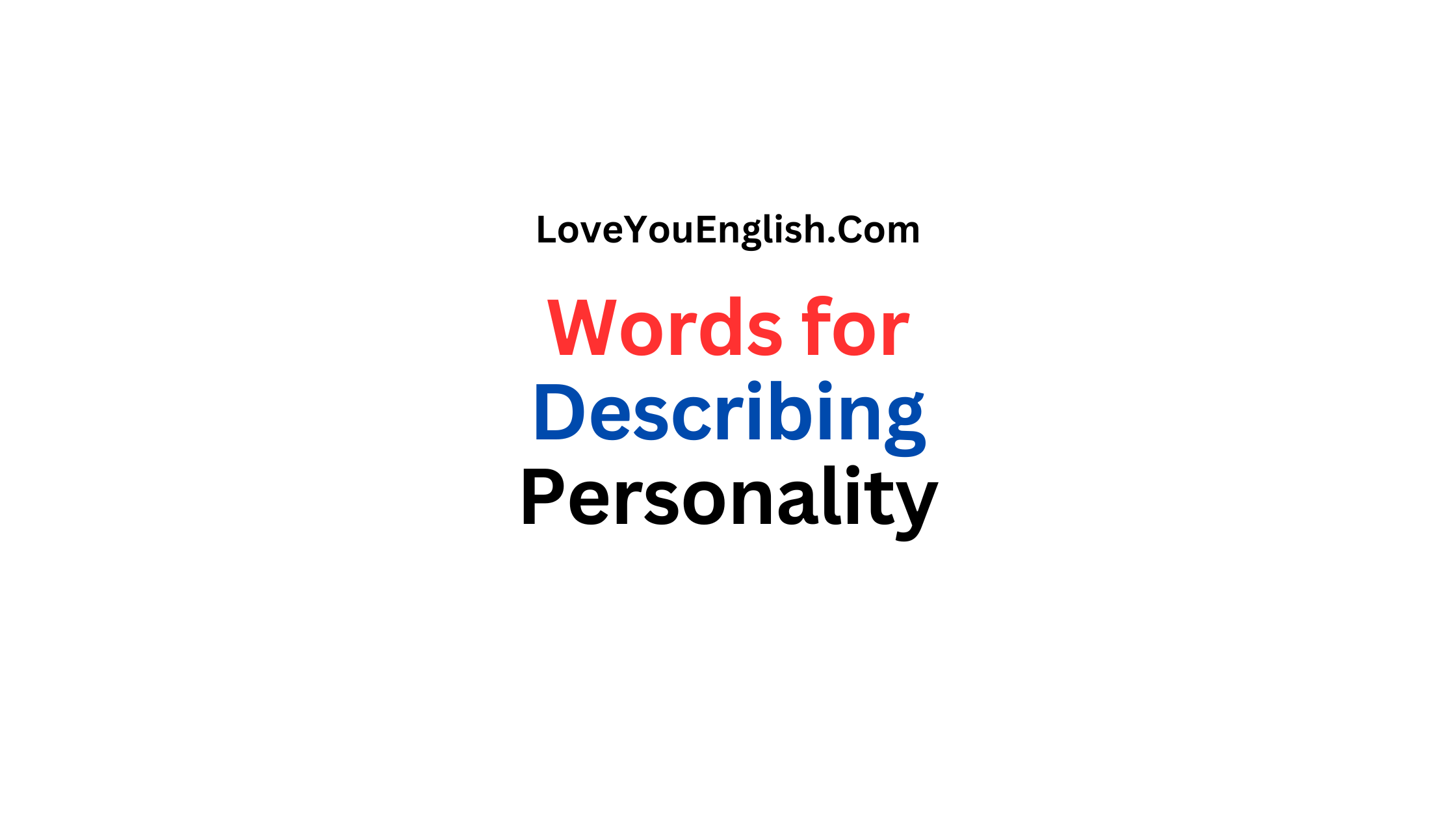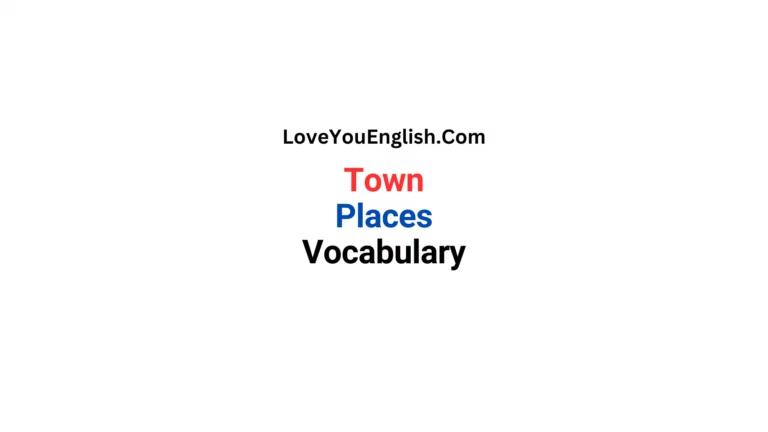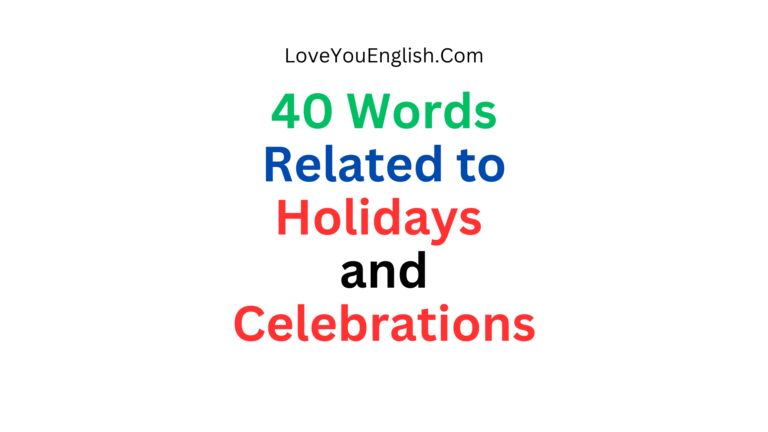Expand Vocabulary: Words for Describing Personality
Our personality is what sets us apart from one another.
It’s made up of our thoughts, feelings, and actions, which influence how we connect with the world and the people in it.
Knowing a lot of words to describe personality can help us understand ourselves and those around us more clearly.
In this post, we will look at many different words that describe various parts of personality.
The Big Five Personality Traits
Before we dive into specific personality words, it’s helpful to understand the “Big Five” personality traits.
These are five broad categories that psychologists use to describe personality:
- Openness: How open a person is to new experiences and ideas.
- Conscientiousness: How organized, responsible, and goal-oriented a person is.
- Extraversion: How outgoing and social a person is.
- Agreeableness: How kind, cooperative, and sympathetic a person is.
- Neuroticism: How emotionally stable or prone to negative emotions a person is.
Many of the words we’ll discuss can be linked to these five traits.
Words Related to Openness
People high in openness are often:
- Curious: Eager to learn and explore new things
- Creative: Good at coming up with new ideas
- Imaginative: Able to think of new possibilities
- Adventurous: Willing to try new experiences
- Open-minded: Accepting of different views and ideas
People low in openness might be described as:
- Traditional: Preferring familiar ways of doing things
- Conventional: Following established norms and customs
- Practical: Focused on real-world applications rather than abstract ideas
- Routine-oriented: Enjoying regular patterns and habits
Words Related to Conscientiousness
Highly conscientious people are often:
- Organized: Good at planning and keeping things in order
- Responsible: Reliable and trustworthy
- Diligent: Hardworking and persistent
- Punctual: Always on time
- Efficient: Able to complete tasks quickly and effectively
People low in conscientiousness might be described as:
- Spontaneous: Acting on impulse rather than planning
- Easygoing: Relaxed and not overly concerned with rules or schedules
- Flexible: Able to adapt to changes easily
- Carefree: Not worried about consequences
Words Related to Extraversion
Extraverted people are often:
- Outgoing: Enjoying social interactions
- Talkative: Liking to engage in conversation
- Energetic: Full of life and enthusiasm
- Assertive: Confident in expressing opinions
- Gregarious: Fond of company and very sociable
Introverted people (low in extraversion) might be described as:
- Reserved: Quiet and not overly expressive
- Reflective: Thoughtful and introspective
- Independent: Comfortable being alone
- Calm: Not easily excited or agitated
- Observant: Good at noticing details about people and situations
More vocabulary:
- Travel Vocabulary: Words and Phrases for Your Next Adventure
- 100 Synonym Words to Enrich Your Vocabulary
- Understanding B1-B2 Vocabulary
- 75 Common English Words Used in Daily Life
- 30 C1-C2 Verbs to Boost Your English Skills
Words Related to Agreeableness
People high in agreeableness are often:
- Kind: Caring and considerate towards others
- Empathetic: Able to understand and share others’ feelings
- Cooperative: Working well with others
- Trusting: Believing in the goodness of others
- Patient: Able to remain calm in frustrating situations
People low in agreeableness might be described as:
- Competitive: Focused on winning or being the best
- Skeptical: Doubtful of others’ intentions
- Direct: Straightforward in communication, sometimes to the point of bluntness
- Independent-minded: Forming their own opinions without being swayed by others
Words Related to Neuroticism
People high in neuroticism are often:
- Anxious: Prone to worry and nervousness
- Sensitive: Easily affected by emotions or criticism
- Moody: Experiencing frequent changes in emotion
- Self-conscious: Very aware of themselves and how others perceive them
- Vulnerable: Easily hurt or affected by stress
People low in neuroticism (emotionally stable) might be described as:
- Calm: Not easily upset or agitated
- Confident: Sure of themselves and their abilities
- Resilient: Able to bounce back from setbacks
- Even-tempered: Not prone to mood swings
- Relaxed: Generally at ease and not worried
Other Important Personality Traits
Beyond the Big Five, there are many other words we use to describe personality:
Positive Traits:
- Honest: Truthful and sincere
- Loyal: Faithful and committed to others
- Generous: Willing to give and share
- Humorous: Funny and able to make others laugh
- Optimistic: Hopeful and positive about the future
- Ambitious: Driven to achieve goals
- Charismatic: Charming and able to attract others
- Compassionate: Caring deeply about others’ wellbeing
- Courageous: Brave in the face of challenges
- Humble: Not proud or arrogant
Negative Traits:
- Selfish: Focused on one’s own interests above others
- Arrogant: Having an inflated sense of self-importance
- Lazy: Unwilling to work or put in effort
- Pessimistic: Tending to see the worst in situations
- Stubborn: Unwilling to change one’s mind
- Manipulative: Skilled at influencing others for personal gain
- Impulsive: Acting without thinking things through
- Jealous: Envious of others’ success or possessions
- Judgmental: Quick to criticize others
- Temperamental: Prone to sudden mood changes
Personality Traits in Different Contexts
Some personality traits are particularly relevant in specific contexts:
Work-related traits:
- Ambitious: Eager to succeed and advance
- Detail-oriented: Paying close attention to small aspects of tasks
- Innovative: Coming up with new ideas and solutions
- Adaptable: Able to adjust to new situations easily
- Leadership: Able to guide and motivate others
Relationship-related traits:
- Affectionate: Showing love and care openly
- Supportive: Providing help and encouragement to others
- Communicative: Good at expressing thoughts and feelings
- Trustworthy: Reliable and able to keep confidences
- Compromising: Willing to find middle ground in disagreements
Personality Traits vs. Mood and Behavior
It’s crucial to understand the difference between personality traits and temporary moods or behaviors:
- Personality traits are relatively stable over time and across situations.
- Moods are temporary emotional states that can change quickly.
- Behaviors are actions that may or may not reflect underlying personality traits.
For example, a generally outgoing person might have days when they feel quiet and reserved, but this doesn’t mean their overall personality has changed.
The Complexity of Personality
Human personality is complex and multifaceted. People often exhibit a mix of traits, some of which might seem contradictory.
For example, someone might be:
- Outgoing in social situations but introspective when alone
- Highly organized at work but relaxed at home
- Confident in their professional life but shy in romantic relationships
This complexity is what makes each person unique and interesting.
Using Personality Words Responsibly
When using words to describe personality, it’s important to:
- Avoid labeling people too quickly or rigidly
- Recognize that personality can evolve over time
- Use personality descriptions to understand, not judge
- Be aware of cultural differences in personality traits
- Remember that everyone has a mix of positive and negative traits
The Benefits of Understanding Personality
Having a rich vocabulary to describe personality can be beneficial in many ways:
- It helps us understand ourselves better
- It improves our ability to communicate about people and relationships
- It can aid in resolving conflicts by understanding different perspectives
- It’s useful in professional contexts, such as team building or leadership development
- It enhances our ability to create realistic characters in writing and storytelling
Conclusion
Describing personality with the right words is a great way to understand how people behave and interact.
The Big Five traits give us a broad view, while more specific words help us see what makes each person stand out.
Keep in mind that personality is really complex and has many layers.
People are not just defined by their traits, so it’s essential to think about personality descriptions with an open heart and respect for everyone’s uniqueness.
By broadening our vocabulary about personality, we can enhance our understanding of ourselves and those around us.
This can help us communicate better, build stronger connections, and appreciate the rich diversity of human nature.







